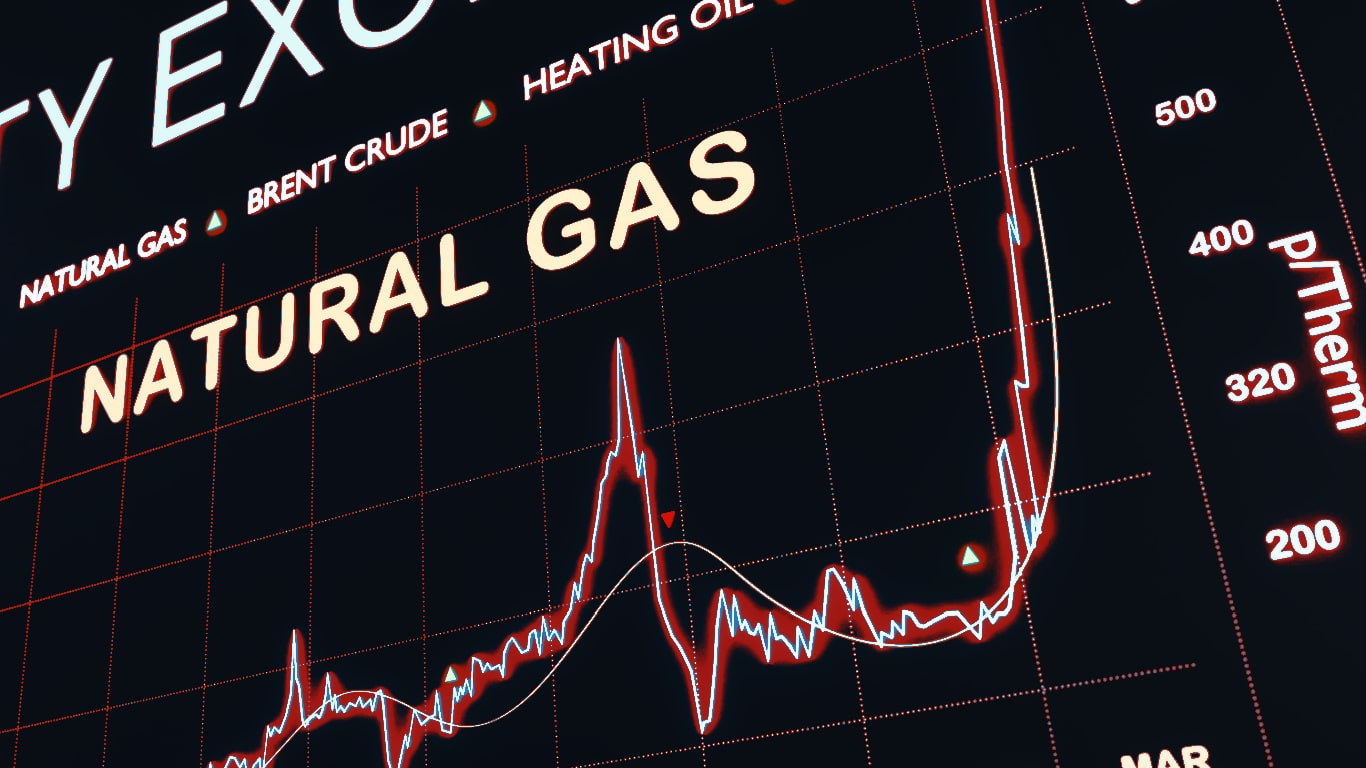With a growing demand for cleaner energy and a shift away from fossil fuels, investing in natural gas stocks can allow investors to benefit from the evolving energy landscape.

Ah, natural gas, the fuel that keeps us warm and our power plants humming. But how do you actually invest in natural gas?
Factors Impacting the Natural Gas Market
Ah, natural gas, the fuel that keeps us warm and our power plants humming. It’s one of the most traded commodities, but what’s the deal with the current market trends and price fluctuations?
Well, like most things these days, it’s complicated. Natural gas prices have been on a bit of a rollercoaster ride lately, with fluctuations driven by a variety of factors.
Let’s get into it.
Politics and Regulation
One of the biggest factors is politics and regulation. Governments worldwide are constantly tinkering with energy policies, which can have a big impact on the price of natural gas. For example, if a country suddenly decides to ban fracking (a controversial method of extracting natural gas from shale rock), the supply of natural gas could drop, leading to higher prices.
Environmental Concerns
Then there are the environmental concerns. While natural gas is considered a “cleaner” fossil fuel than coal or oil, it still emits greenhouse gases when burned. This has led to pushback from environmental groups arguing that we should focus on renewable energy sources instead.
Renewable Energy
Speaking of renewable energy, that brings us to the competition from alternative sources. Solar, wind, and other forms of renewable energy are becoming increasingly cost-competitive with natural gas, especially as technology continues to improve. This means that natural gas faces stiff competition from these up-and-coming energy sources.
So, what does all of this mean for the future of natural gas? Well, it’s hard to say for sure. The market will continue to be influenced by political, environmental, and technological factors, and it’s anyone’s guess how things will play out in the long run. But one thing’s certain: natural gas isn’t going anywhere anytime soon. It will continue to play a crucial role in meeting our energy needs for the foreseeable future.
Ways to Invest in Natural Gas
There are several ways to invest in natural gas, including natural gas ETFs, mutual funds, stocks, futures, and options. Below we look at each option in detail.
Exchange-Traded Funds (ETFs)
Want to get in on the natural gas market action without messing around with physical gas? Look no further than natural gas exchange-traded funds (ETFs.! These bad boys trade on stock exchanges like individual stocks, giving you a quick and easy way to invest in the natural gas game
Just place a trade through your online broker, and you’re in business. It’s like playing the stock market but with a little extra heat (literally).
Some popular natural gas ETFs include:
- United States Natural Gas Fund (UNG): This ETF tracks the price of natural gas futures contracts and invests primarily in natural gas futures traded on the New York Mercantile Exchange. The fund is designed to track the price of natural gas closely.
- First Trust Natural Gas ETF (FCG): This ETF invests in companies involved in natural gas exploration, production, and distribution. It tracks an index of companies in the natural gas sector and provides exposure to the natural gas industry. e
- ProShares Ultra Bloomberg Natural Gas (BOIL): This ETF uses leverage to provide investors with twice the daily return of natural gas futures contracts. It is designed to be used as a short-term trading tool and is not intended for long-term investment.
- iPath Series B Bloomberg Natural Gas Subindex Total Return ETN (GAZB): This ETF tracks the Bloomberg Natural Gas Subindex Total Return, which is designed to reflect the performance of natural gas futures contracts. It is an exchange-traded note (ETN) rather than an ETF, which means that it is a debt instrument rather than a fund.
Looking to spread your investment risk like butter on toast? Natural gas exchange-traded funds (ETFs) have got your back! These babies offer exposure to a whole basket of companies involved in the natural gas industry, which means you won’t be at the mercy of a single company’s performance.
It’s like having a diversified investment portfolio, but with a little extra gas in the tank.
Natural Gas Stocks
Investing in natural gas stocks involves purchasing shares of individual companies that are involved in the exploration, production, distribution, or transportation of natural gas.
There are many natural gas stocks available to investors. Here are a few of the most popular natural gas stocks:
- Chesapeake Energy Corporation (CHK): Chesapeake Energy is one of the largest natural gas producers in the United States. The company operates in major shale formations, including the Marcellus and Utica formations.
- EQT Corporation (EQT): A natural gas producer that operates primarily in the Appalachian Basin. The company also has a midstream business that includes gathering, transmission, and storage.
- Kinder Morgan, Inc. (KMI): Kinder Morgan is one of the largest pipeline companies in North America. The company transports natural gas and other energy products through its network of pipelines.
Investing in natural gas stocks can provide investors with the potential for capital appreciation and dividend income. But It’s important to note, natural gas stocks’ performance may differ from the performance of the underlying commodity because there may be other factors at play, like financial health and the performance of an unrelated business line which may impact the company’s stock price.
Futures and Options
Natural gas futures and options are financial instruments that allow investors to buy or sell natural gas at a specific price and at a specific time in the future.
Investing in natural gas futures and options can be done through a commodity futures trading account with a brokerage firm. However, not all online brokerages offer commodities trading.
Investing in natural gas futures and options offers several advantages, including the potential for significant profits if the investor is able to accurately predict market trends, and can be used to hedge against price fluctuations in the natural gas market, which can help manage risk for investors.
Natural Gas Futures
Natural gas futures contracts specify the price, quantity, and delivery date of natural gas at a future point in time. Investors can either buy a futures contract to receive natural gas at a predetermined price or sell a futures contract to deliver natural gas at a predetermined price.
Natural gas options
Give investors the right, but not the obligation, to buy or sell natural gas at a specific price within a specific time frame. Options can be used to hedge against price fluctuations in the natural gas market or to speculate on future price movements.
Tips for Successful Natural Gas Investing
Before starting your natural gas investing journey, here are some no-nonsense investing tips.
1. Conduct thorough research and analysis
Before investing in natural gas, it’s important to understand the market fundamentals and the factors that can affect natural gas prices. This includes factors such as supply and demand, weather patterns, and global economic conditions. You should also research natural gas companies and their financial performance, as well as any potential risks associated with investing in natural gas.
2. Diversify your portfolio
Diversification is key to managing risk in any investment portfolio. This means spreading your investments across different asset classes, such as stocks, bonds, and commodities like natural gas. By diversifying your portfolio, you can reduce the impact of any losses in one area on your overall portfolio.
3. Monitor market trends and news
It’s important to stay up-to-date with the latest news and trends in the natural gas market. This includes monitoring natural gas prices, as well as any changes in supply and demand, technological developments, and geopolitical events that could affect natural gas prices.
4. Stay up-to-date with political and regulatory developments
Natural gas is subject to regulation, both domestically and internationally. Changes in regulations, such as restrictions on fracking or emissions standards, can affect natural gas prices and the performance of natural gas companies. As a result, it’s important to stay up-to-date with political and regulatory developments that could impact natural gas prices.
5. Seek advice from financial experts
Investing in natural gas can be complex, and it’s important to seek advice from financial experts who have experience in this area. This can include financial advisors, commodity brokers, or natural gas experts who can provide guidance on investing in natural gas and help you navigate the market.
The Bottom Line
Investing in natural gas is like betting on a spicy burrito – it may give you a quick burst of energy, but it could also leave you with some nasty side effects. In other words, natural gas investments can be volatile and risky, so it’s important to do your research and weigh the potential benefits against the potential risks before diving in. As with any investment, it’s always wise to proceed with caution and keep a close eye on the market trends.

